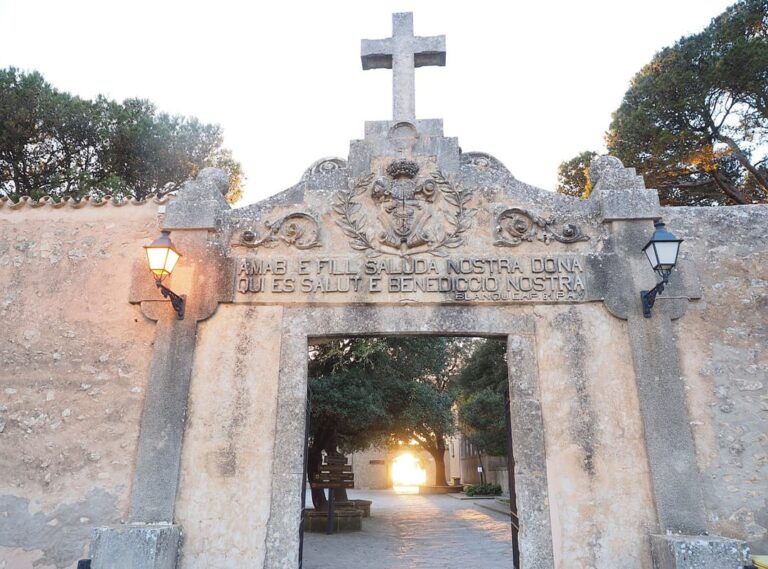Franciscan monasteries have long been recognized not only as centers of spiritual life but also as hubs of social work and charitable activity. Founded on the principles of humility, service, and compassion by Saint Francis of Assisi, the Franciscan Order has historically been deeply committed to addressing the needs of the marginalized and underserved. This commitment to social justice and charity is manifest in the wide range of social services provided by Franciscan monasteries. This article explores the role of Franciscan monasteries in social work and charitable endeavors and how their work aligns with the broader mission of the Order. Additionally, the image of the pope praying to black madonna serves as a poignant symbol of this ongoing dedication to service.
Historical Context and Core Principles
The roots of Franciscan social work and charity can be traced back to the Order’s founding in the early 13th century. Saint Francis of Assisi, deeply moved by the plight of the poor and the outcast, established the Order with a mission to serve and uplift those in need. His emphasis on living a life of poverty and simplicity was grounded in the belief that true service to others required personal sacrifice and a deep commitment to social justice.
Franciscan monasteries, embodying these principles, became active centers for providing aid and support to the needy. Over the centuries, the Order has expanded its charitable work to address a wide range of social issues, from poverty and hunger to education and healthcare.
Modern Social Work and Charitable Activities
- Providing Shelter and Basic Needs
Many Franciscan monasteries operate shelters and food programs for the homeless and impoverished. These initiatives provide not only immediate relief but also long-term support aimed at helping individuals regain their independence. By offering food, clothing, and a safe place to stay, Franciscans fulfill their commitment to meeting the basic needs of those in their communities. - Healthcare and Wellness Services
In addition to providing shelter, many Franciscan monasteries run clinics and healthcare services for those who cannot afford medical care. These services include general medical care, mental health support, and preventive health education. By addressing health disparities, the Franciscans contribute to the overall well-being of underserved populations. - Educational Programs and Vocational Training
Education and vocational training are central to many of the charitable efforts undertaken by Franciscan monasteries. By providing access to education and job training, Franciscans help individuals acquire skills and opportunities that can lead to greater self-sufficiency and improved life circumstances. - Advocacy and Social Justice
Franciscan monasteries are also involved in advocacy work, addressing systemic issues such as inequality, injustice, and environmental degradation. Their commitment to social justice drives them to speak out on behalf of the marginalized and work towards systemic change that aligns with their values of compassion and equity.
Symbolic and Spiritual Dimensions
The image of the Pope praying to the Black Madonna is a powerful symbol of the intersection between faith and social commitment. The Black Madonna, often associated with protection and divine grace, embodies the compassion and care that is central to the Franciscan mission. The Pope’s prayers to the Black Madonna highlight the deep spiritual connection that underpins the work of charity and social service.
For the Franciscans, the Black Madonna represents a call to action—to serve the vulnerable and to uphold the values of humility and care that Saint Francis espoused. This spiritual connection reinforces the importance of their charitable work and provides a source of inspiration and strength as they continue their efforts.
Challenges and Future Directions
Despite their significant contributions, Franciscan monasteries face challenges in their social work and charitable activities. Financial constraints, increasing demand for services, and evolving social issues require ongoing adaptation and innovation. Addressing these challenges involves not only securing resources but also continually assessing and refining their approach to meet the changing needs of the communities they serve.
Future efforts may include expanding partnerships with other organizations, leveraging new technologies for service delivery, and advocating for policies that support social justice and equity. By embracing these opportunities, Franciscan monasteries can enhance their impact and continue to fulfill their mission of service.
Franciscan monasteries have long been pivotal in providing social services and charitable support, reflecting the core principles of humility and compassion established by Saint Francis of Assisi. Their work in sheltering the homeless, providing healthcare, offering education, and advocating for social justice exemplifies their commitment to serving those in need. The spiritual symbolism of the Pope praying to the Black Madonna underscores the deep connection between faith and service, inspiring and guiding the Franciscans in their ongoing efforts. As they face contemporary challenges, the Franciscan Order’s dedication to charity and social work remains a vital and enduring aspect of their mission.











